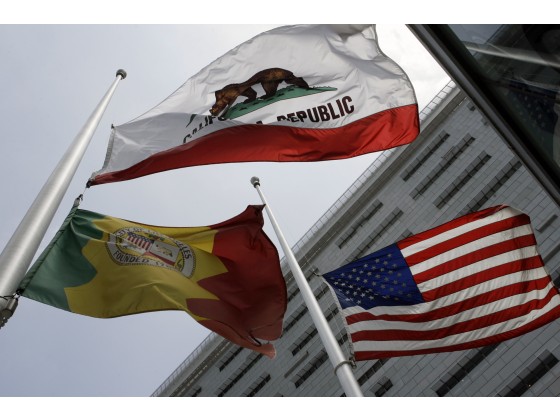The title of the opinion article I am analyzing is “Is it time to abandon the Bear Flag?” by Jon Coupal
Link to the article: http://www.pe.com/articles/flag-825942-bear-symbol.html
This article addresses the issues that California is facing concerning their political awareness and priorities. Jon Coupal asks the question, “Is it time to abandon the Bear Flag?” and proposes that California should change it’s flag symbol to a depiction of the Oroville Dam instead. This is because he believes that the dam more accurately represents the state of the state. He compares the two in his statement that “It’s large, not functioning well, parts are crumbling and it is putting the lives and property of thousands of Californians in jeopardy.” Coupal presents his argument that California’s political agenda is very skewed by giving examples such as “The governor and many lawmakers and local officials would prefer to put their energies into fighting the Trump administration on immigration policy.” He is making it evident that California’s representatives in government are not focusing on the correct issues that concern the state as a whole. Instead of focusing their efforts and funds on pending important needs in California such as infrastructure, highways, dams, and public buildings; these representatives are more concerned with a theoretical secession from the nation because of President Trump’s decisions in office.
Jon Coupal uses a few rhetorical strategies in his article to achieve his purpose of raising awareness to California’s poor political agenda, such as metaphor and diction. Coupal uses metaphor when he compares California to the Oroville dam by implying that California is large, not functioning very well, crumbling, and dangerous to it’s citizens. He is saying that the broken Oroville dam would be a better symbol for California than the strong grizzly bear. Coupal also uses diction to achieve his purpose when he says things like “slavish devotion” when referring to California’s politicians, and their skewed view of helpful infrastructure. Another example of Coupal’s diction is found when he say that politicians are “thumbing their noses” at Trump’s plan to improve infrastructure. This use of diction represents how uneducated California’s politicians are about the problems that their state faces, and they clearly don’t recognize when Trump is trying to help them.
I completely agree with Coupal and his argument that California’s political agenda is very skewed and not prioritized. Although I may not fully agree with everything President Trump stands for, I still think it is important to not dwell on the fact that he was elected, and that it “isn’t fair.” California’s government representatives still need to withhold their offices and carry out their duties, no matter who is in the White House, and those duties are to make California a better place. Instead of mulling over every decision Trump makes, California’s leaders need to make their own decisions that involve California and its well being as a state. I sincerely hope that California’s potential secession is a practical joke, because we have all learned and read about how well that went during the 1860’s. The last times states seceded from the nation, it eventually lead to the bloodiest war ever fought on American soil, the American Civil War.
